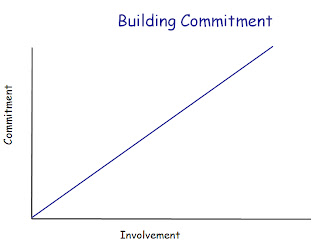First Day, First Show
The first day of the first job is
as good as the first day of driving classes. You don’t know much about the
process, the systems, the expectations or your abilities. However, you want to
learn and you know that this is a time bound exercise. The first job is a test
of sorts and a pace-setter for many careers. The first job needs a different
approach. This approach is subjective and depends on aspects like
organizational culture, reporting structure and role requirements.
The first day of the first job is
an excellent opportunity to create a great first impression. Small things like
reaching office on time, being well-mannered and wearing the right dress do
matter. But these cannot be major differentiators. Qualities like the ‘Right attitude’,
‘Being proactive’ and ‘Attention-to-detail’ can be major factors in giving you
the ‘edge’ over others. Your first day at work can lead to many perceptions.
Hence, you have to be a little observant and careful. Giving the right signals
to the reporting head and your colleagues is essential. Ensure that your
appetite for learning is high and noticed. This will facilitate the right flow
of information at the right time. Be willing to go the extra mile and assist
others at office, work that extra hour if needed and let people know that you
are eager to adapt to the new environment. Understand the expectations that
people have from your role. It’s also important to balance the excitement of a
new place and new role with that of sordid ground realities and
responsibilities. Another critical part is making connections. Talk to people
and make friends with them. You can never underestimate the power of someone’s
assistance and help. You need to know a lot of people who know a lot of people
in order to be ‘heard’ in an organization, especially the ones with a rigid
hierarchy.
Make friends at the workplace.
You might spend nine hours or more every day at office. That is nearly equal to
the time you spend with your family. Staying happy at the workplace,
socializing, and having ‘company’ at the company can help you contribute.
However, a bell of caution needs to be sounded. Ensure you don’t end up doing
work for friends as a matter of routine. You could get stressed out. But do
help people. Don’t get too emotionally attached to your friends and your
company. This may strain you mentally. Know that you cant keep all the people happy, all the time. Your current relationship with the company maybe ‘simple’. It just
takes some minor incidents/events to make it ‘complicated’. Finally, fight for
your right and claim credit where it’s due. You have to blow your own trumpet. That’s
essential because many people are busy claiming credit even when they have
contributed the least. Hence, be ‘heard’ and be ‘seen’ in the right places at
the right times to the right people. Don’t wait to be discovered. Be assertive,
be benefited. One last thing, wear a smile! That’s your sun-screen and windshield
in the office environment. While these nuggets of ‘gyaan’ may not be
comprehensive guide to succeeding at your workplace, they will take you long
way and help you meet your aspirations.


Comments